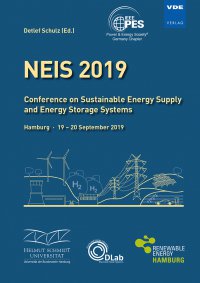Power System Stability Analysis for System-Split Situations with Increasing Shares of Inverter Based Generation
Konferenz: NEIS 2019 - Conference on Sustainable Energy Supply and Energy Storage Systems
19.09.2019 - 20.09.2019 in Hamburg, Deutschland
Tagungsband: NEIS 2019
Seiten: 7Sprache: EnglischTyp: PDF
Persönliche VDE-Mitglieder erhalten auf diesen Artikel 10% Rabatt
Autoren:
Nuschke, Maria; Winter, Bjoern Oliver; Strauss-Mincu, Diana (Fraunhofer IEE, Kassel, Germany)
Engel, Bernd (elenia – University of Braunschweig, Braunschweig, Germany)
Inhalt:
Increasing shares of inverter based generation in the electrical power system on transmission and distribution level are affecting power system stability and analysis. Traditionally, frequency stability analysis is performed with quasi-static time varying phasor simulations. With high portions of inverter based generation and diminishing generation from rotating generators, time constants of the overall power system may decrease due to reduction of synchronous coupled inertia which in turn will influence the applicability of classical frequency stability analysis methods. Thus, in this work, comparative frequency stability analysis has been performed with quasi-static time varying phasor simulation and with more detailed instantaneous value simulation. Different shares of inverter based generation have been investigated in a system-split situation of an exemplary test system under consideration of two different control types of inverters: grid-supporting inverters, as commonly available in the power system and secondly, grid-forming inverters, to date typically only integrated for example in microgrids and island grids. Finally, maximum admissible shares of both inverter types have been determined considering frequency criteria in system split scenarios.


